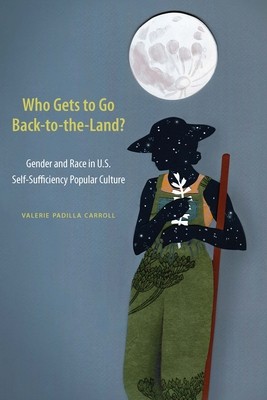
- We will send in 10–14 business days.
- Author: Valerie Padilla Carroll
- Publisher: University of Nebraska Press
- ISBN-10: 1496215001
- ISBN-13: 9781496215000
- Format: 15.2 x 22.9 x 1.8 cm, hardcover
- Language: English
- SAVE -10% with code: EXTRA
Reviews
Description
In Who Gets to Go Back-to-the-Land?, Valerie Padilla Carroll examines a variety of media from the last century that proselytized self-sufficiency as a solution to the economic instability, environmental destruction, and perceived disintegration of modern America. In the early twentieth century, books already advocated an escape for the urban, white-collar male. The suggestion became more practical during the Great Depression, and magazines pushed self-sufficiency lifestyles. By the 1970s, the idea was reborn in newsletters and other media as a radical response to a damaged world, allowing activists to promote the simple life as environmental, gender, and queer justice. At the century's end, a great variety of media promoted self-sufficiency as the solution to a different set of problems, from survival at the millennium to wanderlust of millennials.
Nevertheless, these utopian narratives are written overwhelmingly for a particular audience--one that is white, male, and white-collar. Padilla Carroll's archival research of the books, newspapers, magazines, newsletters, websites, blogs, and videos promoting the life of the agrarian smallholder illuminates how embedded race, class, gender, and heteronormative dogmas in these texts reinforce dominant power ideologies and ignore the experiences of marginalized people. Still, Padilla Carroll also highlights how those left out have continued to demand inclusion by telling their own stories of self-sufficiency, rewriting and reimagining the movement to be collaborative, inclusive, and rooted in both human and ecological justice.
Valerie Padilla Carroll is an associate professor of gender, women, and sexuality studies at Kansas State University.
EXTRA 10 % discount with code: EXTRA
The promotion ends in 18d.02:50:07
The discount code is valid when purchasing from 10 €. Discounts do not stack.
- Author: Valerie Padilla Carroll
- Publisher: University of Nebraska Press
- ISBN-10: 1496215001
- ISBN-13: 9781496215000
- Format: 15.2 x 22.9 x 1.8 cm, hardcover
- Language: English English
In Who Gets to Go Back-to-the-Land?, Valerie Padilla Carroll examines a variety of media from the last century that proselytized self-sufficiency as a solution to the economic instability, environmental destruction, and perceived disintegration of modern America. In the early twentieth century, books already advocated an escape for the urban, white-collar male. The suggestion became more practical during the Great Depression, and magazines pushed self-sufficiency lifestyles. By the 1970s, the idea was reborn in newsletters and other media as a radical response to a damaged world, allowing activists to promote the simple life as environmental, gender, and queer justice. At the century's end, a great variety of media promoted self-sufficiency as the solution to a different set of problems, from survival at the millennium to wanderlust of millennials.
Nevertheless, these utopian narratives are written overwhelmingly for a particular audience--one that is white, male, and white-collar. Padilla Carroll's archival research of the books, newspapers, magazines, newsletters, websites, blogs, and videos promoting the life of the agrarian smallholder illuminates how embedded race, class, gender, and heteronormative dogmas in these texts reinforce dominant power ideologies and ignore the experiences of marginalized people. Still, Padilla Carroll also highlights how those left out have continued to demand inclusion by telling their own stories of self-sufficiency, rewriting and reimagining the movement to be collaborative, inclusive, and rooted in both human and ecological justice.
Valerie Padilla Carroll is an associate professor of gender, women, and sexuality studies at Kansas State University.


Reviews